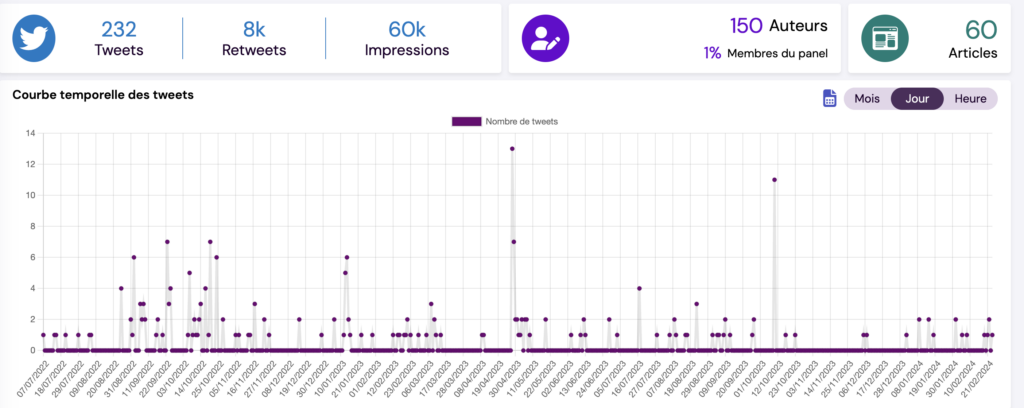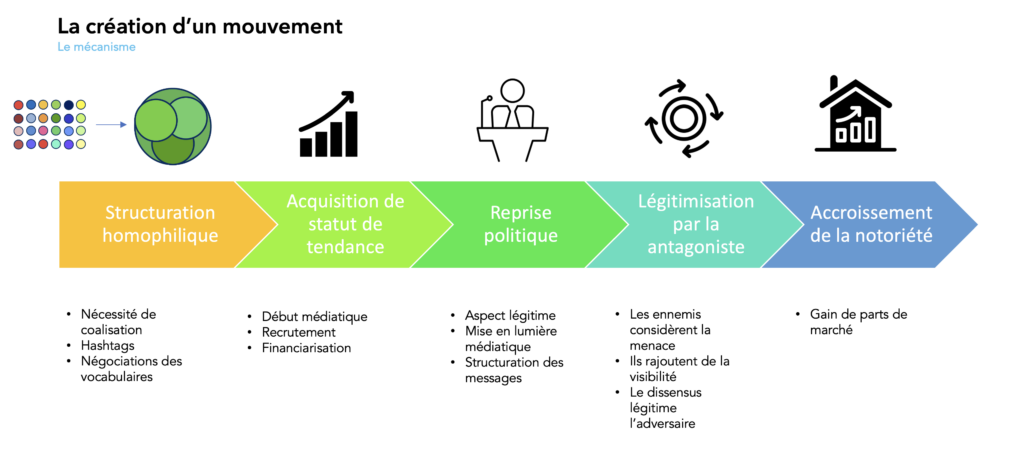Sommaire
Metoo in the army: is there any momentum?
Are there silences that the "grande muette" can no longer maintain? This is certainly what Army Captain and Deputy Laetitia Saint-Paul believes, as she tries to bring the MeToo issue to the forefront within the military and defense sectors.

A problem that must emerge
She is striving to bring this issue to light, arguing that it is abnormal for the Themis unit not to have received a single complaint, despite the army's personnel numbering in the hundreds of thousands. This effort represents the first stage in the lifecycle of an issue: making it exist by acknowledging its presence and significance.

It should be noted that a quick glance at Follaw reveals that the issue has not been addressed by decision-makers over the past four years:

And this discourse largely revolves around the rapes of French soldiers in Congo, Russian soldiers in Ukraine, or in Mali, rather than focusing on the state of affairs within France itself. The same pattern is observed in parliamentary questions:

Moreover, this issue has not yet been materialized into a legislative proposal, which is quite rare and noteworthy:

Is there a chance that the MeToo movement will take hold and impact the "grande muette"?
The foundations of mobilisation
Let's look at thethe basics of a movement like MeToo and others: First, a "trigger" is needed—an event or moment that gains visibility. This event will then be highly publicized. Finally, the media effect will encourage others to speak out, extending the narrative and ensuring the issue stays on the media agenda for a long time.

Before the media surge, it is essential for the cause to have a necessary base of activism to ensure information circulates within the initial circle. A bubble based on homophily (the tendency of individuals to associate with others who share similar interests) will form around the issue, with various NGOs, associations, or specialised media rallying around hashtags and collectively negotiated vocabulary.
- Gradually, articles will emerge, helping to expand this initial circle. As the movement grows significantly, funding will become necessary.
- With the media creating a massive echo, there will be a political response. This political engagement will lend further media credibility to the movement, broadening its coverage.
- Antagonists will then perceive the movement as a threat. They will vehemently oppose it, but in doing so, they will inadvertently contribute to the movement’s visibility.
- Finally, the movement will establish long-term notoriety. The challenge is that as the movement becomes mainstream, it may either attempt to radicalise or blend into the mainstream.
All this aims to trigger the "bandwagon effect." This phenomenon suggests that people are more likely to adopt an idea, opinion, or belief if it is already accepted by others. Essentially, it creates a new societal component.omposante sociale qui apparait normal à la majorité des gens parce qu'il a l'air d'être communément admis.

It is therefore very interesting to observe the first phase, because everything depends on the media. The MeToo movement in cinema starts with a testimony that is then kept alive by further testimonies reinforcing the message. Subsequently, the Césars become the key moment and the pinnacle of the sequence.
Conclusion
However, in the case of the military, the story told here has not yet sparked a strong debate in the public sphere in France. It has not triggered further testimonies to denounce similar issues and the systemic problems in place. Therefore, it is highly likely that there will never be a #MeToo movement within the military, as the necessary components (media halo, multiple testimonies, extending the period during which the issue is addressed, etc.) are not in place to ensure a political response.




